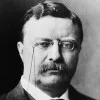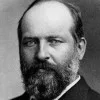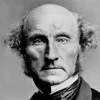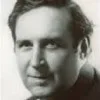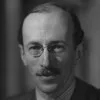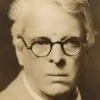The man who does nothing cuts the same sordid figure in the pages of history, whether he be cynic, or fop, or voluptuary. There is little use for the being whose tepid soul knows nothing of the great and generous emotion, of the high pride, the stern belief, the lofty enthusiasm, of the men who quell the storm and ride the thunder.
Theodore Roosevelt (1858-1919) American politician, statesman, conservationist, writer, US President (1901-1909)
Speech (1910-04-23), “Citizenship in a Republic [The Man in the Arena],” Sorbonne, Paris
(Source)
Quotations about:
conviction
Note not all quotations have been tagged, so Search may find additional quotes on this topic.
In a republic, to be successful we must learn to combine intensity of conviction with a broad tolerance of difference of conviction. Wide differences of opinion in matters of religious, political, and social belief must exist if conscience and intellect alike are not to be stunted, if there is to be room for healthy growth. Bitter internecine hatreds, based on such differences, are signs not of earnestness of belief but of that fanaticism which, whether religious or anti-religious, democratic or anti-democratic, is itself but a manifestation of the gloomy bigotry which has been the chief factor in the downfall of so many, many nations.
Theodore Roosevelt (1858-1919) American politician, statesman, conservationist, writer, US President (1901-1909)
Speech (1910-04-23), “Citizenship in a Republic [The Man in the Arena],” Sorbonne, Paris
(Source)
LADY BRACKNELL: I dislike arguments of any kind. They are always vulgar, and often convincing.
Oscar Wilde (1854-1900) Irish poet, wit, dramatist
The Importance of Being Ernest, Act 3 (1895)
(Source)
To be enlightened: a big phrase! Certain men think themselves enlightened because they are decided: thus taking conviction for truth, and strong conception for intelligence. There are others who, because they know all the words, think they know all the truths.
[Être éclairé, c’est un grand mot! Il y a certains hommes qui se croient éclairés, parce qu’ils sont décidés, prenant ainsi la conviction pour la vérité, et la forte conception pour l’intelligence. Il en est d’autres qui, parce qu’ils savent tous les mots, croient savoir toutes les vérités.]Joseph Joubert (1754-1824) French moralist, philosopher, essayist, poet
Pensées [Thoughts], ch. 4 “De la Nature des Esprits [On the Nature of Minds],” ¶ 36 (1850 ed.) [tr. Calvert (1866), ch. 5]
(Source)
(Source (French)). Alternate translations:Enlightenment -- a great word! Some men think themselves enlightened, because they are decided, taking conviction for truth, and strong conception for intelligence. Others, because they know all that can be said think that they know all truth.
[tr. Lyttelton (1899), ch. 3, ¶ 15]Enlightenment is a fine word! Some men fancy themselves enlightened because they are decisive, thus taking conviction for truth, and force of conception for intelligence. Others think that because they have every word at their command, they have every truth also.
[tr. Collins (1928), ch. 4]Because they know all the words, they think they know all the truths.
[tr. Auster (1983)], 1819 entry]
Other people’s truth may comfort us, but only your own persuades us.
Mignon McLaughlin (1913-1983) American journalist and author
The Second Neurotic’s Notebook, ch. 4 (1966)
(Source)
Narrow-mindedness: allowing one’s prejudices to become convictions.
Marcelene Cox (1900-1998) American writer, columnist, aphorist
“Ask Any Woman” column, Ladies’ Home Journal (1944-06)
(Source)
Time has a way of demonstrating
The most stubborn are the most intelligent.Yevgeny Yevtushenko (1933-2017) Russian poet, writer, film director, academic [Евге́ний Евтуше́нко, Evgenij Evtušenko]
“A Career” (1957)
(Source)
Every fool stands convinced; and everyone convinced is a fool; and the faultier a man’s judgment, the firmer his conviction.
[Todo necio es persuadido, y todo persuadido necio; y quanto mas erroneo su dictamen, es mayor su tenacidad.]
Baltasar Gracián y Morales (1601-1658) Spanish Jesuit priest, writer, philosopher
The Art of Worldly Wisdom [Oráculo Manual y Arte de Prudencia], § 183 (1647) [tr. Fischer (1937)]
(Source)
(Source (Spanish)). Alternate translation:All Fools are Opiniatours, and all Opiniatours are Fools. The more Erroneous their Opinions are, the more they hug them.
[Flesher ed. (1685)]Every fool is fully convinced, and every one fully persuaded is a fool: the more erroneous his judgment the more firmly he holds it.
[tr. Jacobs (1892)]Fools are stubborn, and the stubborn are fools, and the more erroneous their judgment is, the more they hold onto it.
[tr. Maurer (1992)]
We should strive only to think and speak rightly, without seeking to win others over to our own taste and opinions; that is too great an undertaking.
[Il faut chercher seulement à penser et à parler juste, sans vouloir amener les autres à notre goût et à nos sentiments; c’est une trop grande entreprise.]
Jean de La Bruyère (1645-1696) French essayist, moralist
The Characters [Les Caractères], ch. 1 “Of Works of the Mind [Des Ouvrages de l’Esprit],” § 2 (1.2) (1688) [tr. Stewart (1970), “Of Books”]
(Source)
(Source (French)). Alternate translations:We must only endeavour to think and speak justly our selves, without aiming to bring others over to our taste and sentiment; We shall find that too great an enterprize.
[Bullord ed. (1696) "Of Polite Learning"]We must only endeavour to think and speak justly our selves, without aiming to bring others over to our Taste and Sentiments; that would be too great an Enterprize.
[Curll ed. (1713), "Of Works of Wit and Eloquence"]We must only endeavour to think and speak justly ourselves, without aiming to bring others over to our Taste and Sentiments; that would be too great an Enterprize.
[Browne ed. (1752), "Of Works of Genius"]We should only endeavor to think and speak correctly ourselves, without wishing to bring others over to our taste and opinions; this would be too great an undertaking.
[tr. Van Laun (1885)]
Herr Docktor Getwin Mittelmind (PhD, MD, BFA, University of Salzburg) was a spark who specialized in mad psychology. A specialized field to be sure. He was not locked away in Castle Heterodyne because he built giant anteaters. No, he was locked away in Castle Heterodyne because he could take a perfectly ordinary group of people and within six days they would build a giant anteater — because it was the logical thing to do.
Phil Foglio (b. 1956) American writer, cartoonist
Agatha H. and the Siege of Mechanicsburg (2020) [with Kaja Foglio]
(Source)
We were like a lot of clocks, he thought, all striking different hours, all convinced we were telling the right time.
A man may be in as just possession of Truth as of a City, and yet be forced to surrender.
Thomas Browne (1605-1682) English physician and author
Religio Medici, Part 1, sec. 6 (1643)
(Source)
History is not a catalogue but a version of events … a convincing version of events. If an historian is any good, he is convinced by his own version of events and then tries to put this conviction across.
A. J. P. Taylor (1906-1990) British historian, journalist, broadcaster [Alan John Percivale Taylor]
“The view from Twisden Rd.”, interview by Duncan Fallowell, The Spectator (28 May 1983)
(Source)
And the funny thing was that people who weren’t entirely certain they were right always argued much louder than other people, as if the main person they were trying to convince were themselves.
The men who succeed best in public life are those who take the risk of standing by their own convictions.
James A. Garfield (1831-1881) US President (1881), lawyer, lay preacher, educator
“Gustave Schleicher,” Speech, House of Representatives (17 Feb 1879)
(Source)
When the conduct of men is designed to be influenced, persuasion, kind, unassuming persuasion, should ever be adopted. It is an old and true maxim “that aa drop of honey catches more flies than a gallon of gall.” If you would win a man to your cause, first convince him that you are his sincere friend. Therein is a drop of honey that catches his heart, which, say what you will, is the great high-road to his reason, and which, when once gained, you will find but little trouble in convincing his judgement of the justice of your cause, if indeed that cause really be a just one.
Abraham Lincoln (1809-1865) American lawyer, politician, US President (1861-65)
Speech, Washingtonian Temperance Society, Springfield, Illinois (22 Feb 1842)
(Source)
How easy it is to make people believe a lie, and how hard it is to undo that work again!
Mark Twain (1835-1910) American writer [pseud. of Samuel Clemens]
Dictation (2 Dec 1906), The Autobiography of Mark Twain, Vol. 2 (2013)
(Source)
A sentiment that may be behind the spurious Twain quotation, "It's easier to fool people than to convince them that they have been fooled."
The difference between a conviction and a prejudice is that you can explain a conviction without getting angry.
(Other Authors and Sources)
Anonymous
No definitive source is found for this quotation. Frequently attributed to Gregory Benford, Deeper than the Darkness (1970), but it has shown up anonymously at least as early as 1951 as "filler" material in periodicals. Also sometimes attributed to Samuel Butler or Dorothy Sarnoff, but not with any citation.
One person with a belief, is a social power equal to ninety-nine who have only interests.
John Stuart Mill (1806-1873) English philosopher and economist
Considerations on Representative Government, ch. 1 (1861)
(Source)
Often misquoted, "One person with a belief is equal to a force of ninety-nine who have only interests."
It is difficult to get a man to understand something, when his salary depends upon his not understanding it!
Upton Sinclair (1878-1968) American writer, journalist, activist, politician
I, Candidate for Governor: And How I Got Licked, ch. 20 (1935)
(Source)
A regular comment of his on the campaign trail. The wording is Sinclair's, though there are earlier references with the same sentiment (see here for more discussion).
Often misattributed to H. L. Mencken. (e.g., "Never argue with a man whose job depends on not being convinced") though not found in his work.
Acquitting the guilty convicts the judge.
[Iudex damnatur cum nocens absolvitur.]
Publilius Syrus (d. 42 BC) Assyrian slave, writer, philosopher [less correctly Publius Syrus]
Sentences [Sententiae], #296
(Source)
Motto of the Edinburgh Review. Alt. trans.:There were multiple collections made of Publilius Syrus' Sententiae in Antiquity and the Middle Ages. This appears in all of them, but often with different line/sentence numbers, incl. #256 and #257.
- "When the guilty man is let off, the judge stands condemned."
- "The judge is condemned when the criminal is acquitted." [tr. Lyman (1856), #868]
When blithe to argument I come,
Though armed with facts, and merry,
May Providence protect me from
The fool as adversary,
Whose mind to him a kingdom is
Where reason lacks dominion,
Who calls conviction prejudice
And prejudice opinion.Phyllis McGinley (1905-1978) American author, poet
“Moody Reflections,” The New Yorker (13 Feb 1954)
(Source)
Be not afraid! In admitting a creator, refuse not to examine his creation; and take not the assertions of creatures like yourselves, in place of the evidence of your senses and the conviction of your understanding.
Frances "Fanny" Wright (1795-1852) Scottish-American writer, lecturer, social reformer
A Course of Popular Lectures, Lecture 3, “Of the more Important Divisions and Essential Parts of Knowledge” (1829)
(Source)
Our culture has accepted two huge lies. The first is that, if you disagree with someone’s lifestyle, you must fear or hate them. The second is that to love someone means you agree with everything they believe, say, or do. Both are nonsense. You don’t have to compromise convictions to be compassionate.
Rick Warren (b. 1954) American Christian pastor and author
“Rick Warren on Muslims, Evangelism & Missions,” interview with Brandon A. Cox, Christian Post (2 Mar 2012)
(Source)
The intoxication of anger, like that of the grape, shows us to others, but hides us from ourselves; and we injure our own cause, in the opinion of the world, when we too passionately and eagerly defend it […] Neither will all men be disposed to view our quarrels precisely in the same light that we do; and a man’s blindness to his own defects will ever increase, in proportion as he is angry with others, or pleased with himself.
Charles Caleb "C. C." Colton (1780-1832) English cleric, writer, aphorist
Lacon, Vol. 1, #240 (1820)
(Source)
Considering the temptations under which politicians are placed, of changing their opinions, or rather their professions of opinion, from motives of self interest, the world will not give them credit for motives of honest conviction, unless when the change shall be to their manifest loss and disadvantage.
Henry Taylor (1800-1886) English dramatist, poet, bureaucrat, man of letters
The Statesman: An Ironical Treatise on the Art of Succeeding, ch. 17 (1836)
(Source)
Just as every conviction begins as a whim so does every emancipator serve his apprenticeship as a crank. A fanatic is a great leader who is just entering the room.
Everyone is prejudiced in favor his own powers of discernment, and will always find an argument most convincing if it leads to the conclusion he has reached for himself; everyone must then be given something he can grasp and recognize as his own idea.
Some people are to be reasoned, some flattered, some intimidated, and some teased into a thing; but, in general, all are to be brought into it at last, if skillfully applied to, properly managed, and indefatigably attacked in their several weak places.
Lord Chesterfield (1694-1773) English statesman, wit [Philip Dormer Stanhope]
Letter to his son, #183 (22 May 1749)
(Source)
There is no better way to convince others than first to convince oneself.
Marcus Tullius Cicero (106-43 BC) Roman orator, statesman, philosopher
(Attributed)
(Source)
In Martin Luther, Table Talk (1566) [tr. Smith & Gallinger (1915)].
Earthly minds, like mud walls, resist the strongest batteries: and though, perhaps, sometimes the force of a clear argument may make some impression, yet they nevertheless stand firm, and keep out the enemy, truth, that would captivate or disturb them. Tell a man passionately in love that he is jilted; bring a score of witnesses of the falsehood of his mistress, it is ten to one but three kind words of hers shall invalidate all their testimonies.
The presence of those seeking the truth is infinitely to be preferred to the presence of those who think they’ve found it.
In our reasonings concerning matter of fact, there are all imaginable degrees of assurance, from the highest certainty to the lowest species of moral evidence. A wise man, therefore, proportions his belief to the evidence. […] No testimony is sufficient to establish a miracle, unless the testimony be of such a kind, that its falsehood would be more miraculous, than the fact, which it endeavors to establish.
But in stating prudential rules for our government in society I must not omit the important one of never entering into dispute or argument with another. I never yet saw an instance of one of two disputants convincing the other by argument. I have seen many of their getting warm, becoming rude, & shooting one another. Conviction is the effect of our own dispassionate reasoning, either in solitude, or weighing within ourselves dispassionately what we hear from others standing uncommitted in argument ourselves.
Propaganda thus serves more to justify ourselves than to convince others; and the more reason we have to feel guilty, the more fervent our propaganda.
Eric Hoffer (1902-1983) American writer, philosopher, longshoreman
True Believer: Thoughts on the Nature of Mass Movements, Part 3, ch. 14, § 84 (1951)
(Source)
Certitude is not the test of certainty. We have been cocksure of many things that were not so.
Oliver Wendell Holmes, Jr. (1841-1935) American jurist, Supreme Court Justice
“Natural Law,” Harvard Law Review (1918-11)
(Source)
Legal citation: 32 Harvard Law Review 40, 41 (1918).
But indeed Conviction, were it never so excellent, is worthless till it convert itself into Conduct. Nay properly Conviction is not possible ill then.
Thomas Carlyle (1795-1881) Scottish essayist and historian
Sartor Resartus, Book 2, ch. 9 (1831)
(Source)
Give to us clear vision that we may know where to stand and what to stand for — because unless we stand for something, we shall fall for anything.
Peter Marshall (1902-1949) Scottish-American preacher, author, US Senate chaplain
Prayer at opening of US Senate session (1947-04-18)
(Source)
This phrase has a significant history prior to Marshall's use of it; see Quote Origin: If You Don’t Stand for Something, You’ll Fall for Anything – Quote Investigator®.
Nothing is so firmly believed as what is least known.
[N’est rien creu si fermement, que ce qu’on sçait le moins.]Michel de Montaigne (1533-1592) French essayist
Essays, Book 1, ch. 31 “We Should Meddle Soberly with Judging Divine Ordinances [Qu’il faut sobrement se mesler de juger des ordonnances divines]” (1572) (1.31) (1595) [tr. Frame (1943), ch. 32]
(Source)
Both the essay and the quote appeared in the 1st (1580) edition.
(Source (French)). Alternate translations:Nothing is so firmely beleeved, as that which a man knoweth least.
[tr. Florio (1603)]Nothing is so firmly believed as what we least know.
[tr. Cotton (1686)]What we know is the least of what we do not know.
[tr. Friswell (1868)]Nothing is so firmly believed, as what we least know.
[tr. Cotton/Hazlitt (1877)]Nothing is so firmly believed as that which we know least.
[tr. Ives (1925), ch. 32]Nothing is so firmly believed as whatever we know least about.
[tr. Screech (1987), ch. 32]
Where so many hours have been spent in convincing myself that I am right, is there not some reason to fear I may be wrong?
A fanatic is a man who does what he thinks th’ Lord wud do if He knew th’ facts iv the case.
[A fanatic is a man who does what he thinks the Lord would do if He knew the facts of the case.]
Turning and turning in the widening gyre
The falcon cannot hear the falconer;
Things fall apart; the centre cannot hold;
Mere anarchy is loosed upon the world,
The blood-dimmed tide is loosed, and everywhere
The ceremony of innocence is drowned;
The best lack all conviction, while the worst
Are full of passionate intensity.William Butler Yeats (1865-1939) Irish poet and dramatist
“The Second Coming,” ll.1-8 (1920)
(Source)
More examination of this quotation: The Best Lack All Conviction While the Worst Are Full of Passionate Intensity – Quote Investigator. See also Russell and Bukowski.

